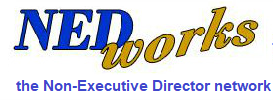When driving a car or riding a motorbike, what use is data on the performance of the engine for the last hour vs. the previous three months? Yet most reports for business are built on detailed analysis of historic or specific deals, while the sales teams are focused on closing future business. A commercial dashboard needs to support moving the business toward the desired goals whilst enabling the monitoring of key performance metrics: the analogy of a car dashboard, providing data on speed, engine temperature, and remaining fuel, for example, enables informed decision-making and more accurate predictions of future success, i.e. whether arrival at the destination will be timely; whether there is enough fuel for the journey.
As a director, is the board getting the right data to create the right conversations and learning?
Unlike a motorbike, which does not provide historical data, commercial teams and boards are likely to be working with a mix of sales reports and dashboards: what each person sees will depend on the type of business and their role in the organisation. Non-Executive Directors, who are not in the business on a daily basis, will be forced to rely on both forms of data, to enable a clearer understanding of how the commercial teams are operating, to learn what factors are driving their successes and failures, and to ensure the business is learning from its activities. In truth, most SME’s have grown by chasing the business directly in front of them, fixating on the next order and pushing the business harder, not always stopping to learn the lessons of both failure and success. This simple approach which delivers results in the short term, driving high earning sales teams to keep running and deliver without taking the time to reflect and improve, is not sustainable as a longer-term strategy.
Sustainable success requires a regular cadence of reflection and analysis: the business needs to look at what is working, as well as what could be improved, to develop insights that drive positive change. Most importantly, directors need to be sufficiently well-informed so they can ask the right questions at, or even before board meetings, so as to maintain the level of scrutiny of the commercial team their role requires.
Below is an example dashboard for a commercial team selling a generic product or service. Taking a little time to review the data presented here is a useful exercise in identifying potential problem areas of performance: the inquiring reader should come away with a minimum of four questions for the commercial team come the next board meeting.
There are a range of questions which could be asked, none particularly right nor wrong. Here are four example areas which certainly merit further discussion with the appropriate commercial function:
- Marketing: The highest average contract value is generated by ‘Paid Leads’ at £5.35K. These leads however only constituted 10% of the total lead activity - what might be the result of increased focus on paid leads?Why focus here? The average value of a converted lead is £3.86k; the value of the paid leads is higher at £5.35k . An increase in paid leads of 100 might reasonably be expected to return potential additional sales of £149K
- Sales: The average sale cycle length is 22.2 - 40% of this time is spent on the Opportunity and Proposal stages; the time spent in Negotiation is equally long. What are the reasons for the protracted period of negotiation? How might we change this to re-balance how the commercial team is spending its time? How might our customers react?Why focus here? Selling adds value in any negotiation; to reach an agreement, value is traded between the vendor and the customer. Spending more time selling should increase sales and profit equally.
- Sales: There has been an 11% increase in the length of the selling cycle in the last period but only a 2% increase in the average size of the deal. What is slowing the selling process? Why is the deal size is not increasing at the same rate?Why focus here? Is there an internal process that is stopping the company from closing opportunities and increasing sales? The current data suggests that some factor is causing the time and effort required to close a sale to increase significantly, but with little or no increase in reward (revenue). Understanding the cause of this phenomenon - which needs urgent attention - would be of paramount importance to the business’ future success.
- Sales: The Follow-up Contract Rate of Isabell and Kaleb drops off significantly after the 2nd follow up call when compared with Ryan or Steve. How is this affecting their sales performance?Why focus here? Most business is won through understanding the need, selling the value, and then the tenacity of the commercial team. Isabell and Kaleb appear to be very active for the first few contacts, but they then seem to stop connecting with the customer. What is the result? Are sales being unnecessarily lost? Might training and coaching be required to get could get them back on-track? The number of contacts required to successfully close a sale is often underestimated by sales and non-sales people alike: below is a useful statistic which clearly underlines the importance of commercial-team-tenacity:
If you have any questions or comments, please feel free to share them at www.Sales-Hacks.ltd - we can always learn from each other.
The key to a good dashboard or sales report is its alignment with the goals of the company and its utility in measuring the output of the activities that enable the goals to be achieved. The example dashboard has 6 data points enabling the sales teams and their leaders to quickly and easily understand how they are performing, and by interrogating the data most boards can promptly answer the key questions concerning company performance: whether the company is heading in the right direction, and how likely it is that the company will achieve its goals. If the answer to either of these questions is negative, or worse still, the commercial team cannot answer the questions, the subsequent discussions are likely to be trans-formative for both the company, its employees and its directors.
At Sales-Hacks we are supporting NED’s , boards and their sales leadership; to use their data to drive the business harder while allowing all levels to understand the language and key topics to support SME’s and large corporate organisations to understand each other and align. For more information visit www.Sales-Hacks.ltd
As part of our work we have partnered with Excellencia Limited delivering online and face to face training courses for Boards or NED’s on ‘Sales for Non-Sales Directors’ for more information please visit www.excellencia.co.uk
Quality sites
- Casinos Not On Gamstop
- Non Gamstop Casinos
- Migliori Siti Casino Online
- Betting Sites UK
- Casinos Not On Gamstop
- Gambling Sites Not On Gamstop
- Casino Online Non Aams
- UK Online Casinos Not On Gamstop
- Sites Not On Gamstop
- Non Gamstop Casino Sites UK
- Online Casino Real Money
- Sites Not On Gamstop
- Best Non Gamstop Casinos 2025
- UK Gambling Sites Not On Gamstop
- UK Online Casinos Not On Gamstop
- UK Casinos Not On Gamstop
- I Migliori Casino Non Aams
- Best New Slot Sites UK
- UK Slot Sites
- Meilleur Casino En Ligne
- UK Casino Not On Gamstop
- Casino Not On Gamstop
- Best Non Gamstop Casinos
- Lista Casino Online Non Aams
- Siti Casino Online Non Aams
- Casino Non Aams Italia
- Paris Sportif Tennis
- Casino En Ligne France
- Crypto Betting Sites
- Meilleur Site De Pari En Ligne
- найкраще казино
- Casino En Ligne 2026
- Casino Senza Documenti
- Migliori Casino Non Aams
- Casino En Ligne
- Nouveaux Casinos En Ligne
- Btc Casino
- Meilleur Casino En Ligne Suisse
- Crypto Casino Malaysia






Sorry, the comment form is closed at this time.